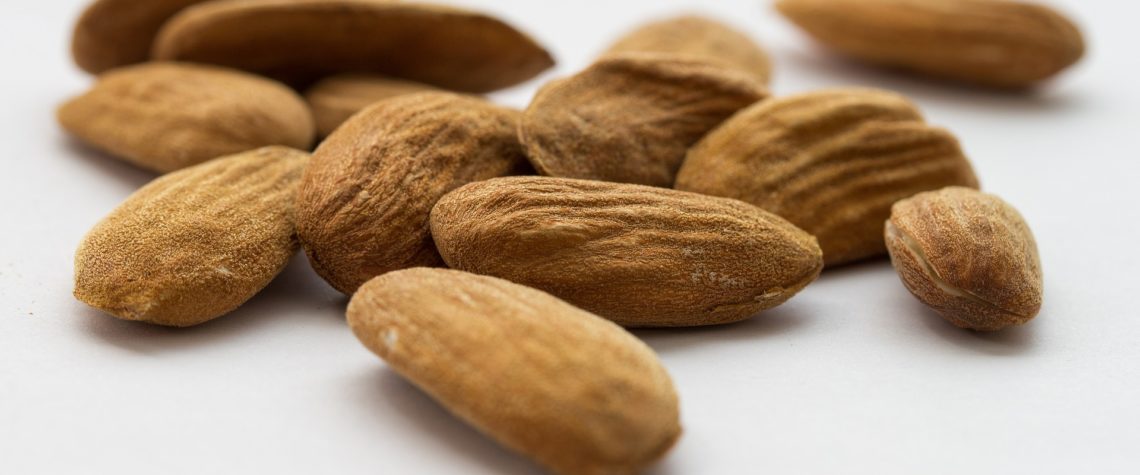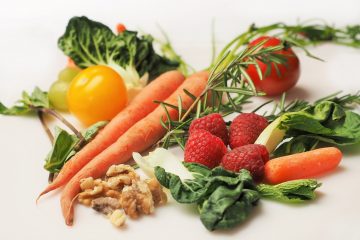5 foods to help us beat the ‘Winter Blues’
Leading dietitian Juliette Kellow shares five foods that can help us beat the “Winter Blues”
With winter creeping in and the clocks going back, many of us begin to feel tired, sluggish, and a little demotivated. Regularly we blame the weather and lack of daylight at this time of year, but feeling low and tired could actually be a consequence of missing out on essential nutrients that help reduce tiredness and contribute to healthy psychological function.
A switch in our diet might well be a remedy to fighting the Winter Blues says leading Dietitian Juliette Kellow, who has selected five foods that contain the nutrients that might reduce tiredness when daylight hours decrease.
1.Almonds
 “When cold-weather cravings kick-in, it’s easy to resort to sugary treats like chocolate and biscuits but opting to snack on a handful of almonds (about 28g) will deliver a nutrient-packed and satisfying snack. Almonds are a high source of fibre and natural source of protein, both of which are associated with increased sensations of satiety that will tide you over until your next meal. Almonds contain niacin (vitamin B3), folate and iron, and are rich in riboflavin (vitamin B2) and magnesium, all essential nutrients that contribute to a reduction in tiredness and fatigue.
“When cold-weather cravings kick-in, it’s easy to resort to sugary treats like chocolate and biscuits but opting to snack on a handful of almonds (about 28g) will deliver a nutrient-packed and satisfying snack. Almonds are a high source of fibre and natural source of protein, both of which are associated with increased sensations of satiety that will tide you over until your next meal. Almonds contain niacin (vitamin B3), folate and iron, and are rich in riboflavin (vitamin B2) and magnesium, all essential nutrients that contribute to a reduction in tiredness and fatigue.
Meanwhile, savvy snacking is even more crucial at this time of year because when blood sugar levels dip, it can compound some of the symptoms we associate with the Winter Blues such as irritability, tiredness and poor concentration. Studies show that almonds may have a positive effect on modulating blood sugar levels.[1]”
2. Eggs
 “Eggs contain folate and are a good source of vitamin B12, both of which are essential for healthy psychological function. Adding eggs into your winter diet also delivers a dose of vitamin D – good news as even on sunny days at this time of year, the sun’s rays are too weak to make this vitamin in our body. Eggs are also rich in tryptophan – an amino acid (protein building block) that makes serotonin in our brain. This feel-good hormone affects our mood, appetite and sleep, and a lack of sunlight can lead to lower levels, which in turn is linked to feelings of depression.”[2]
“Eggs contain folate and are a good source of vitamin B12, both of which are essential for healthy psychological function. Adding eggs into your winter diet also delivers a dose of vitamin D – good news as even on sunny days at this time of year, the sun’s rays are too weak to make this vitamin in our body. Eggs are also rich in tryptophan – an amino acid (protein building block) that makes serotonin in our brain. This feel-good hormone affects our mood, appetite and sleep, and a lack of sunlight can lead to lower levels, which in turn is linked to feelings of depression.”[2]
3. Wholegrains
 “Incorporating wholegrains into our diet helps to stabilise blood sugar levels, which in turn can help us control our appetite. Starchy foods also trigger the release of insulin, which indirectly helps tryptophan enter the brain, where it’s then used to make mood-boosting serotonin.”
“Incorporating wholegrains into our diet helps to stabilise blood sugar levels, which in turn can help us control our appetite. Starchy foods also trigger the release of insulin, which indirectly helps tryptophan enter the brain, where it’s then used to make mood-boosting serotonin.”
4. Spinach
“If you’re suffering from the winter blues, it’s worth ensuring your body is equipped with sufficient iron as a lack of this key mineral can make us feel exhausted, even when we’re getting enough sleep. Your handful of almonds is a good start, as this is a source of iron, but consider adding spinach to your winter meals as this provides iron and also a wealth of nutrients like folate and vitamin C which help to reduce tiredness.”
5. Water
 “It’s a familiar adage but if you’re dehydrated, you can begin to feel sluggish and run down, so it’s important to keep drinking enough water throughout winter. One study looked at the effects of dehydration in women and found that even mild dehydration led to a lower mood, tasks seemed more difficult, and concentration was worse.”[3]
“It’s a familiar adage but if you’re dehydrated, you can begin to feel sluggish and run down, so it’s important to keep drinking enough water throughout winter. One study looked at the effects of dehydration in women and found that even mild dehydration led to a lower mood, tasks seemed more difficult, and concentration was worse.”[3]
For more almond facts and snacking inspiration, visit Almonds.co.uk, like our Facebook page, facebook.com/almondsuk, and follow us on Instagram @almondsuk
*Approximately 28g or 23 almonds.
[1] Li, S C et al (2010) Almond consumption improved glycemic control and lipid profiles in patients with type 2 diabetes. Metabolism 60 (4): 474-479.
[2] NHS Choices. Seasonal Affective Disorder (SAD)
[3] Armstrong L.E., et al, Mild Dehydration Affects Mood in Healthy Young Women, The Journal of Nutrition, December 21, 2011, doi: 10.3945/jn.111.142000.














